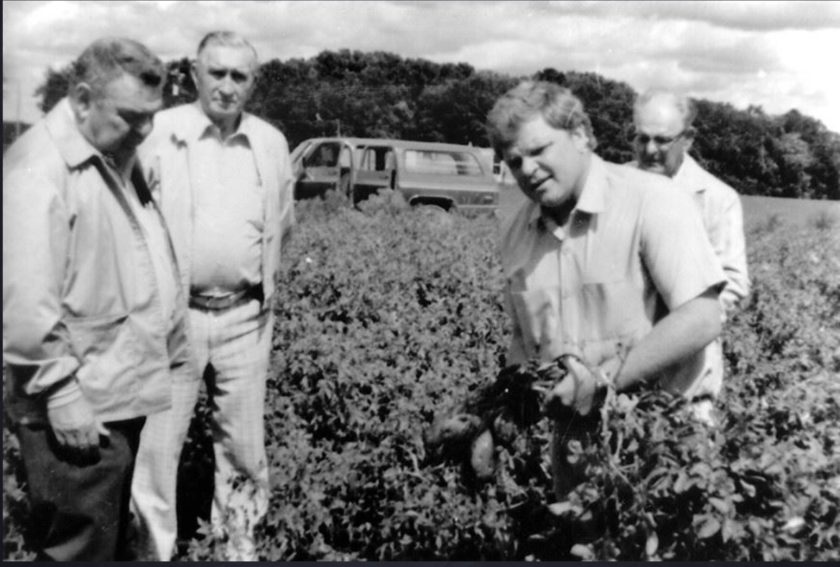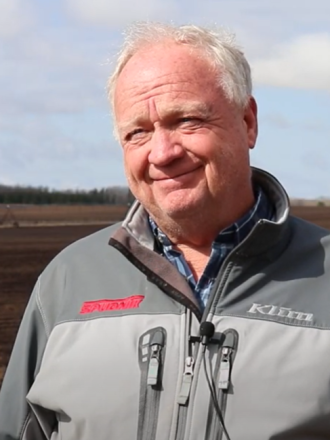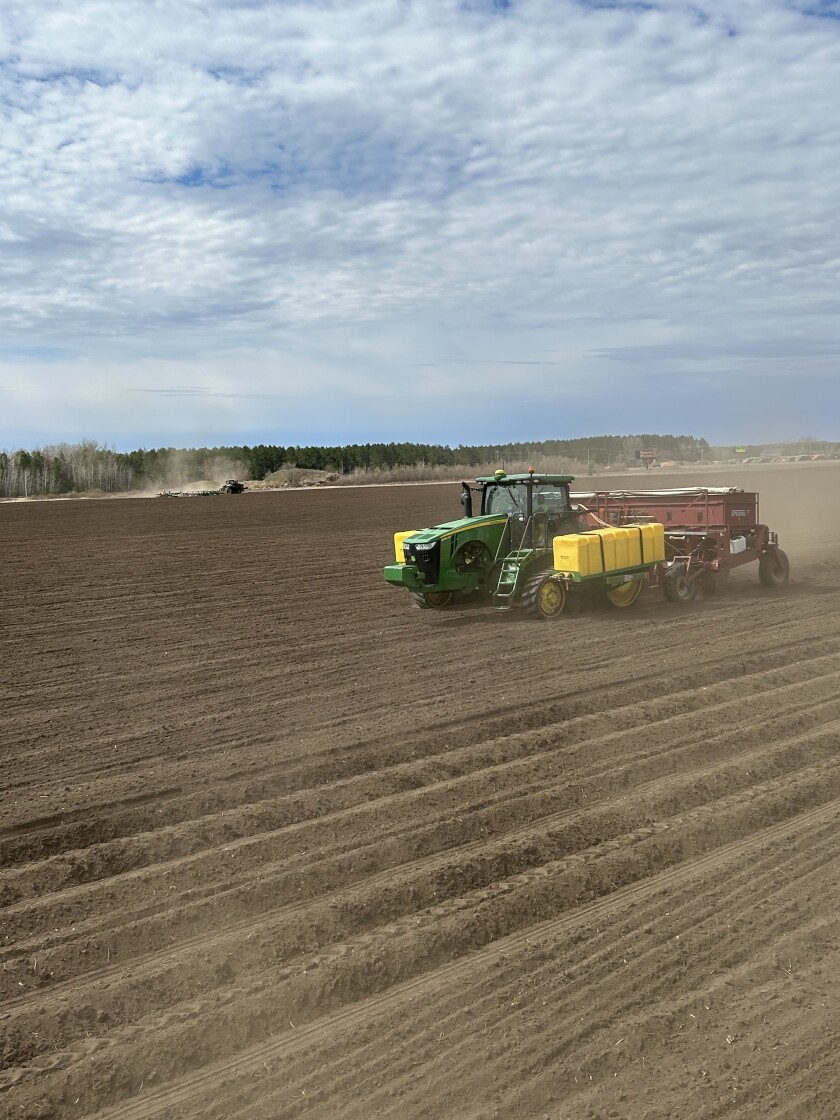PARK RAPIDS, Minn. — For 60 years in a row, R.D. Offutt Farms seed potatoes were buried beneath the sandy soils near Park Rapids.
It’s a tradition kept alive by the consumer looking for a steady flow of superior French fries, and RDO staff remaining on the cutting edge of potato production and sustainability.
ADVERTISEMENT
Tuesday, April 23, a crew was assembled south of Park Rapids on a wide expanse of sandy circles each with an irrigation pivot at its center. Staff were on hand to plant using brand new planters fitted with cameras that show every potato as it is placed roughly 14 inches apart across thousands of acres. Other staff kept a steady flow of seed potatoes coming to refill the planter on nearly every return pass.
Ron Offutt began planting potatoes in Minnesota with his dad in 1964. R.D. Offutt Farms now operates more than 15 potato farms across four states in the Midwest, employing more than 500 team members.

“Since our beginning, we have been a good neighbor in the communities where we farm,” said founder Ron Offutt in a statement. “We believe the most sustainable and efficient way to farm is one field at a time, giving the individual crop only what it needs to thrive. We make significant investments in new technologies and subscribe to the most up-to-date scientific information available — to protect the environment while producing high-quality crops.”
Warren Warmbold, R.D. Offutt Farms vice president of Midwest Operations, was there to see his 45th season of planting here. He pointed to rows of conifers at corners of the fields, where crops are not planted. Crops are on a four to five-year rotation with a cycle of potatoes, soybeans, edible beans, corn or cover crops. All are planted within the reach of the irrigation system. The corners are left for either tree plantings or pollinator plantings. Warmbold can recall planting some of those trees by hand in his youth when he got started with RDO. The company will plant roughly 20,000 this year, only it’s not done by hand anymore.
“There’s some pretty good-sized trees since I started,” Warmbold said.

While they’ve planted about 400,000 trees since the late 1970s, it’s the potatoes that receive utmost attention. In a span of about two weeks, roughly 7,000 acres will be planted in the Park Rapids region with about 2,200 pounds of potatoes planted per acre. That’s about 15 million pounds of potato seeds. The variety being planted Tuesday was Umatilla, a late-maturing variety well suited for frozen French fries. Another variety they plant is Burbank, both Russet potatoes.
“Spring of (2024) is back to kind of a what I would call a normal spring start,” Warmbold said. The last two seasons have been slower starts due to weather. “We’re probably running two weeks ahead of the past couple of years. Soil conditions are in excellent shape.”
ADVERTISEMENT
New this year is a potato planter from Spudnik that plants not with a cup style, but rather belts and a foam roller. This allows them to have fewer skipped potatoes, and they can plant a wide range of sizes, without having to cut the potatoes into a uniform size. RDO staff had two of these planters doing the work of about four planters. There are only about 10 of these planters in the world.

Planting is precise with new tractors fitted with GPS field mapping technology. They also use variable rate fertilizer applicators and remote soil moisture sensing so irrigation happens when it’s needed to avoid letting the potatoes get “wet feet.”
“North American potato farms are at the forefront of sustainable agriculture,” said John Mesko, CEO of Potato Sustainability Alliance in a statement. “PSA program participants like RDO continue to grow more potatoes with less inputs — ensuring a safe and stable food supply while maximizing yields and protecting the environment. Sustainable agriculture is quite simply farming in ways that improve the environmental, social and economic resources over time, and RDO is a great example of a farm that is making those kinds of improvements.”
To make it 60 years in the potato business, Warmbold said they’ve had to do the right things to be successful. Consistent pressure from environmental groups concerned about the repercussions of intensive farming — particularly growing potatoes in what were formerly pine forests — often sheds a poor light on the industry.
“I personally feel that we have been farming right,” Warmbold said. He and his team members live in the areas surrounding these farm fields. “I love to hunt and fish and I like to see it done right so we can continue to do that.”

While he feels they’ve been doing their best to do their work sustainably, he adds that they continue to improve on that each year.
“Our water consumption and usage has definitely gotten better and you’re using less water just because … potatoes are really critical on how much water you put on,” Warmbold said.
ADVERTISEMENT
Potato farming in this region has been a major part of the economy from the potato farms to the Lamb Weston/RDO potato processing facility. Ron Offutt built the potato processing plant in Park Rapids in 1981. It’s all powered by about 300 million pounds of potatoes pouring out of this 60-mile radius.

“It’s all hauled, stored here. So really the year never ends,” Warmbold said. “We’re actually still shipping it as we’re planting now, you know.”
As the cycle of potato planting, growing and harvesting continues, Warmbold looks back over his 45 years with the company with pride as he said the business continues to make progress with every passing year.












